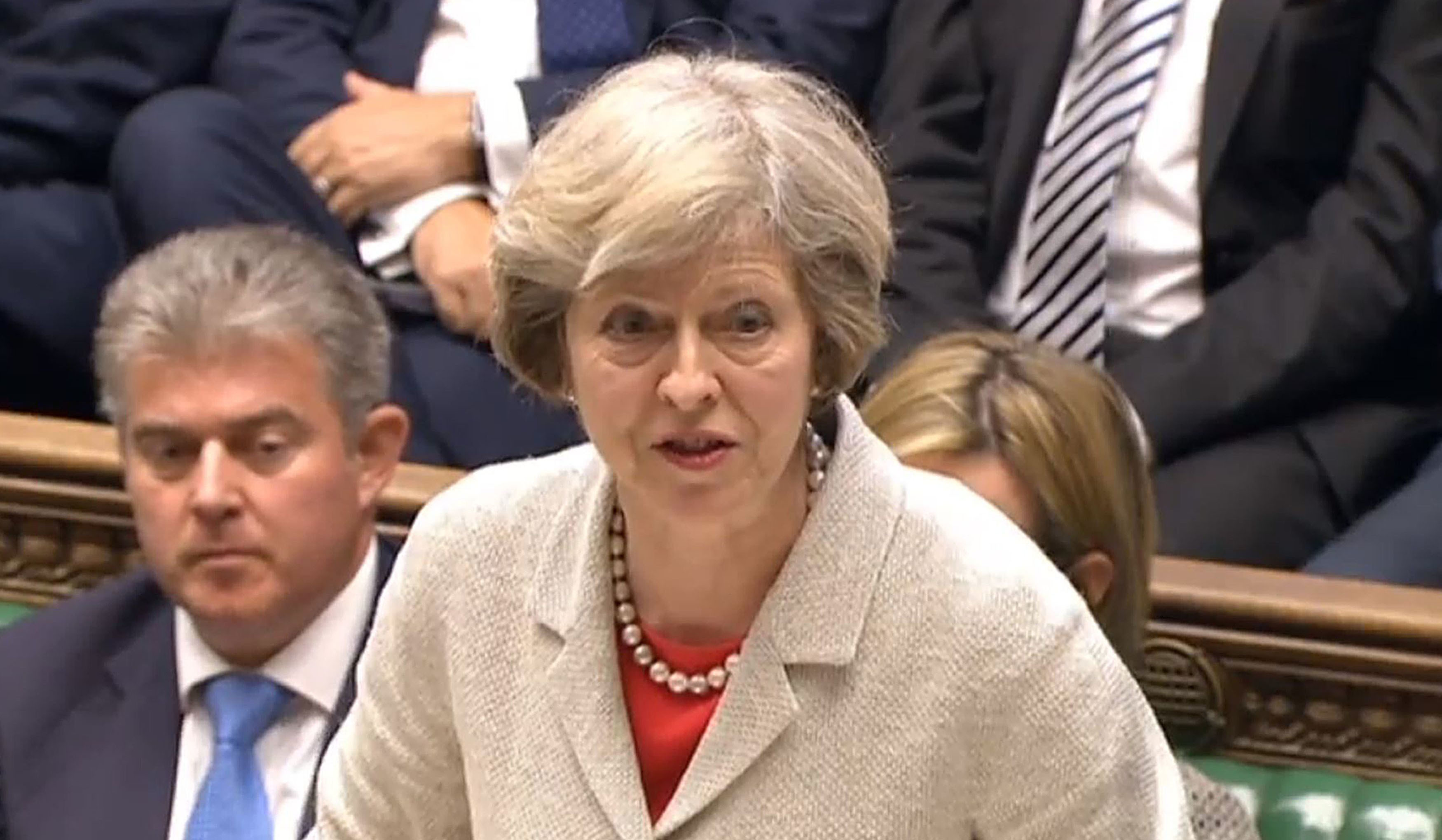
MPs have been debating whether or not Britain should renew its nuclear weapons when Trident reaches the end of its lifespan.
New Prime Minister Theresa May laid out the case for renewing the deterrent, saying it would be a “reckless gamble” if Britain relied on other nations instead, while Jeremy Corbyn reinforced his view as a lifelong opponent of nuclear weapons.
Here are the most important quotes from the debate in Parliament before the vote.
“We cannot compromise on our national security, we cannot outsource the grave responsibility we shoulder for keeping our people safe, and we cannot abandon our ultimate safeguard out of misplaced idealism.That would be a reckless gamble; a gamble that would enfeeble our allies and embolden our enemies; a gamble with the safety and security of families in Britain that we must never be prepared to take.”
-Theresa May
“We’re discussing eight missiles, 40 warheads with each warhead believed to be eight times as powerful as the atomic bomb which killed 140,000 people in Hiroshima in 1945. We’re talking about 40 warheads, each one with the capacity to kill more than one million people. What is the threat that we’re facing that over a million people’s deaths actually deters?… I do not believe the threat of mass murder is a legitimate way to go about dealing with international relations.”
– Jeremy Corbyn
“If Scotland is a nation, and Scotland is a nation, it is not a normal situation for the state to totally disregard the wishes of the people, and this Government has a democratic deficit in Scotland, and with today’s vote on Trident it’s going to get worse, not better. It will be for the Scottish people to determine whether we are properly protected in Europe and better represented by a Government that we actually elect – at this rate, that day is fast approaching.”
-Angus Robertson, SNP
“This (Adolf Hitler not using nerve gas against Allied troops in 1943) is a classic example of a dictator being deterred from using a mass destruction weapon by the mistaken belief that we could retaliate in kind when actually we could not do so. Such examples show in concrete terms why the concept of deterrence is so important in constraining the military options available to dictators and aggressors.”
-Julian Lewis, Conservatives
“In a world where it’s uncertain, who a few years ago would have predicted the rise of Daesh (Islamic State)? Who a few years ago would have predicted what the Russians have done in the eastern Ukraine or indeed have done in the Crimea? The answer to that, as far as I can see in reading back then, is that nobody foresaw those events. And given that we’re trying to predict what will happen over the next 40 or 50 years, why is it that in those circumstances a government will say: ‘We will give up what we regard as the ultimate insurance policy in security for our nation in those circumstances’?”
– Vernon Coake, Labour former minister
“Nobody can stand in the missile compartment of a ballistic submarine without a sense of terrible awe. Our warheads have the capacity to destroy 40 million people, and I know all here hold that responsibility, feel that responsibility, extremely acutely.”
– Andrew Murrison, Conservatives
“We have to constantly probe the Government, question them and ask whether we are getting good value for money. I accept the arguments, I have read the reports, I know that all the alternatives have problems with them, but we simply cannot give a blank cheque to the military industrial complex.”
– Sir Edward Leigh, Conservatives
“Yes it is true that we face other threats such as Islamic terrorism and the uncertainty of global warming and economic uncertainty. Is there one silver bullet to face all these threats? No there isn’t. But I’m quite clear the retention of our nuclear deterrent is vital to resist the resurgent Russia which is developing its nuclear weapons.
– Kevan Jones, Labour
“To say the world is safer with nuclear weapons is akin to saying there would be less gun crime in the United States if there were more firearms.”
– Ronnie Cowan, SNP
“We have to be conscious that whilst Nato is dependent on mutual defence how confident are we that future United States’ governments will continue to undertake 70% of the bill for Nato. How many people are confident that Donald Trump will put Europe’s defence at the top of the list?”
– Kevin Foster, Conservatives
“This is a colossal investment in a weapons system that will become increasingly vulnerable… I believe we will have to throw good money in order to secure it, tens of billions of it more than already estimated, to try and keep it safe in the years to come.”
– Crispin Blunt, former Tory minister and chair of the foreign affairs committee
“The elephant in the room is that it is about status, not about safety”.
– Margaret Ritchie, SDLP
“We have to face facts. The threats we face are growing. There are 17,000 nuclear weapons out there. Nuclear weapons are here, they are not going to disappear, and it is the role of government to make sure we can defend ourselves against them.”
– Michael Fallon, Defence Secretary
READ MORE
MPs will vote on Trident renewal on July 18, says David Cameron
Police force guarding Trident at ‘limits’ of resources warns leading officer

Enjoy the convenience of having The Sunday Post delivered as a digital ePaper straight to your smartphone, tablet or computer.
Subscribe for only £5.49 a month and enjoy all the benefits of the printed paper as a digital replica.
Subscribe




